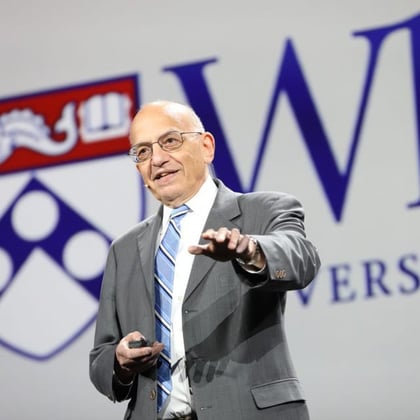What You Need to Know
- Small-cap value stocks trading at much lower multiples could do especially well in the coming months.
- The emeritus professor also suggested that the economy seems to be growing at a just-right pace.
Jeremy Siegel expects “another good year” for the S&P 500 in 2024, with an 8% to 10% price gain.
Value stocks, particularly smaller-cap value stocks trading at much lower multiples, could fare even better, with around a 15% appreciation, Siegel, the Wharton School economist, said Monday on the WisdomTree blog.
“We started off the year with some profit taking in tech stocks. No one wanted to pay capital gains tax in 2023, so those who wanted to reduce tech exposure delayed sales until 2024,” he wrote, adding that WisdomTree’s model portfolios delayed trades for the same reason.
As for the bond market in the long term, the Wharton emeritus finance professor and WisdomTree senior economist indicated he doesn’t see much upside for 10-year Treasurys.
Siegel expects Federal Reserve interest rates to settle around 3% to 3.5% beyond this year, with a 50- to 75-basis-point positive “term premium” — the investor premium for making a long-term bond investment.
“This would get a 10-year yield closer to 4%. That happens to be where the 10-year Treasury is trading today, so the upside on adding to bond duration here seems small given the yield sacrifice that has to be made,” Siegel wrote.









 January 08, 2024 at 05:18 PM
January 08, 2024 at 05:18 PM








